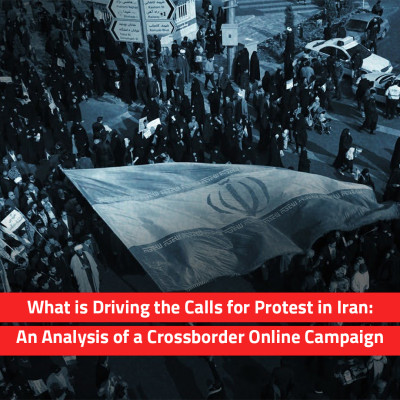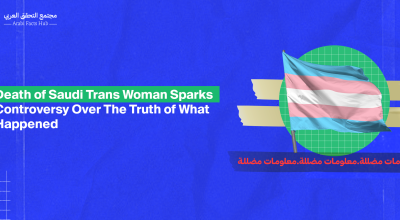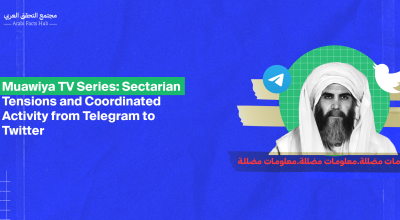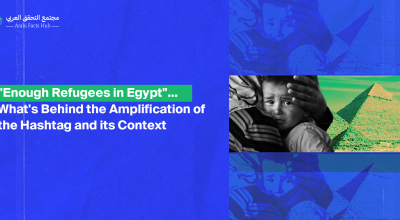Shiite Factions in Iraq Launch Online Campaign in Support of Child Marriage Law
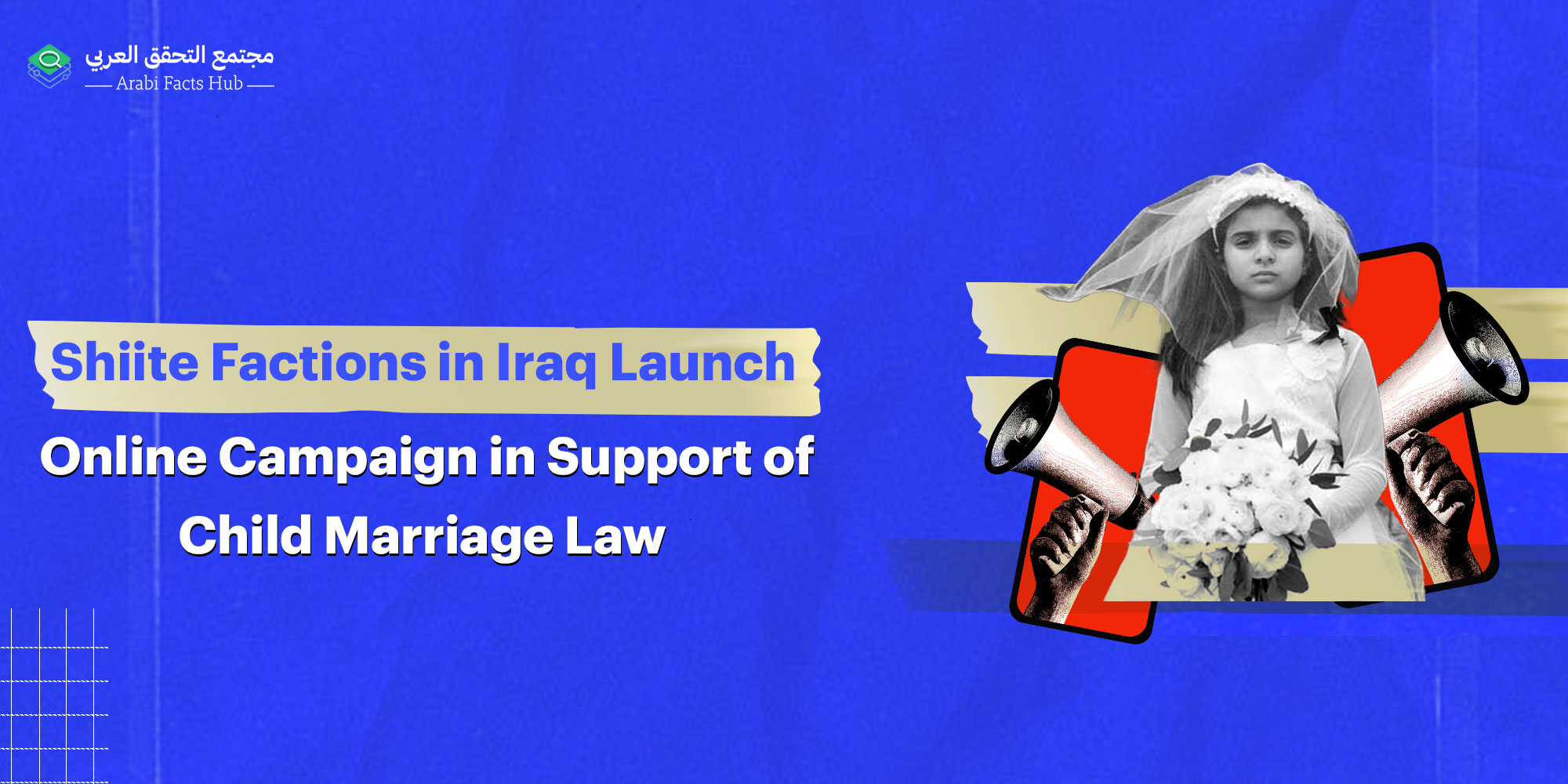
Efforts by the Iraqi parliament to amend the Personal Status Law have sparked widespread controversy, and opposition from activists and civil society organizations, while Shiite political factions aligned with Iran push for the approval of the law. Amid the ongoing debate, coordinated and inauthentic activities have emerged, aiming to amplify the narrative in favor of the amendments, using fake accounts to discredit opponents of the changes.
_____________________________________________________________________________________
Efforts by the Iraqi parliament to amend the Personal Status Law have sparked widespread controversy, with opposition from activists and civil society organizations, while Shiite political forces linked to Iran pushed for the approval of the bill. Amid the ongoing debate, coordinated and inauthentic activities have surfaced, aiming to amplify the support for the amendments. These efforts relied on fake accounts to discredit opponents of the changes.
Recently, MP Raed Al Maliki presented a proposal to amend Iraq's Personal Status Law No. 188 of 1959, with three key provisions. Among them is the decriminalization of marriage contracts conducted outside the court and expanding the court's role in ratifying marriage contracts. Supporters of the Jaafari Shiite sect back these proposals, believing they will reduce divorce rates, address rising rates of unmarried women, and protect the family structure. On the other hand, opponents of the proposal fear it could deprive women of inheritance rights and worry that, if passed, it may lead to an increase in child marriages and further expand male control at the expense of women's and children's rights, particularly in matters of divorce, motherhood, and child custody.
While there have been around 1,600 tweets rejecting the proposal under the hashtag #No_To_Amending_The_Personal_Status_Law, posts in favor of the proposal exceeded 34,000 across the hashtags #Amending_the_Personal_Status_Law_Is_Our_Demand and #Yes_To_Amending_the_Personal_Status_Law. These pro-amendment posts were viewed over two million times, generating around 88,300 interactions (likes, shares, comments), according to statistics from Meltwater, a leading internet and social media content analysis company.
The hashtags saw multiple peak activity periods from the resumption of the law debate in July through September 2024. However, the largest surge occurred on September 2, 2024, when 17,640 posts were made in a single day, a typical sign of non-organic online activity.

Who is influencing the movement?
Approximately 3,300 accounts participated in the campaign supporting the proposed amendment to the law. Additionally, accounts linked to Iran-backed Shiite political forces contributed to amplifying the hashtags #Our_Demand_is_Amending_the_Personal_Status_Law and #Yes_to_Amending_the_Personal_Status_Law. These accounts have tens of thousands of followers often featuring personal photos alongside images of Iran’s Supreme Leader Ali Khamenei and the former commander of Iran's Quds Force, Qassem Soleimani, as well as the logos of Shiite groups like the Popular Mobilization Forces and Asa'ib Ahl al-Haq. Some of these accounts have previously participated in influence campaigns and trolling efforts, promoting more conservative laws, and supporting the agenda of pro-Iran forces.
Fake Network and AI-Generated Images
The analyzed hashtags showed signs of an organized effort and coordinated manipulative activity to amplify the campaign's message advocating for amending the Personal Status Law. Various online mobilization tactics were used to support the proposed changes. One of these tactics involved the use of a network of fake accounts with a low follower count. The activity of these accounts mainly revolved around sharing and reposting content from larger accounts, as well as replying and commenting with repetitive phrases on other accounts. "X" (formerly Twitter) identified non-authentic activities from some of these accounts and limited direct access to their content. For example, the account @hawraa650, created in May 2023, had more than 71,000 posts—a highly unusual rate for human accounts but a common pattern for automated accounts.

The second tactic involved the repeated mass posting of the same content on X, either through different accounts or by the same accounts responding to users commenting on the amendments. The following messages were widely reposted:"The Iraqi Constitution guarantees the right to follow the religious sect a person believes in. Therefore, Shiites have the right to have their own personal status law based on the teachings of Imam Al Sadiq (peace be upon him).""As a Shiite and a follower of the Ja'fari school, I am not obligated, nor are my family and children, to follow the fatwas and laws of other sects that contradict the Quran and the (prophetic) heritage..! I am ready to give up unjust privileges that contradict my religion and sect, in obedience to God and the Sharia of the Messenger of Allah (peace be upon him)."
This repetition aimed to reinforce the campaign's narrative and influence public discourse surrounding the proposed amendments.
In addition to the accounts being fake, other indicators suggest that the campaign is not spontaneous. One such sign is the issuance of 25,200 posts from accounts with no known geographic location. Among the accounts that did list a location, Iraq ranked first with 6,400 posts, followed by Lebanon (419), Iran (294), and the United States (216).
Regarding the type of posts, retweets and replies accounted for about 73% of the total posts, an unusually high rate that indicates coordinated activity. In contrast, original posts—those created directly by the accounts—represented only 25.5%, according to Meltwater's statistics.</p


This campaign also leveraged generative AI tools to produce visual content that depicted protests supporting the amendments. While some of these images may initially appear realistic, details like the color quality, exaggerated features of the figures, and unusually tall Iraqi flags reveal their inauthenticity. Although real demonstrations in support of the amendments took place, the images accompanying posts on the hashtags were not taken at those events. It appears that AI tools were fed specific phrases, characters, and descriptions to generate these images, which were frequently shared across both fake and genuine accounts. For example, images of Iraq’s top Shiite cleric, Ali Al Sistani, repeatedly appeared alongside the phrase “Amending the Personal Status Law is Our Demand” in numerous posts.
The images were often accompanied by text defending the Ja'fari school of thought, which is based on the teachings of Imam Ja'far Al Sadiq, the sixth of the twelve infallible Shiite imams. Under Ja'fari jurisprudence, women do not inherit land or real estate, except in rare cases. One post stated, “The Ja'fari law is a source of pride for the Shiite sect, as it is based on the teachings of the infallible Imam Al Sadiq (peace be upon him). We must defend this law, which protects our personal rights according to our religious beliefs.”
Other posts argued in favor of the amendments, claiming that the current personal status law discriminates against the Shiite majority and that the proposed changes are derived from Islamic Sharia. Additionally, these posts called for standing firmly against those who attempt to undermine the Iraqi family, referring to feminist organizations promoting "negative ideas" and supporting what is known as the CEDAW convention. Iraq joined the CEDAW convention in 1986, which obligates signatory states to grant women equal rights to men.
Incitement and Hate Speech
Posts within the campaign included incitement and hate speech directed at civil society organizations, feminist institutions, and women’s rights activists, particularly those opposing the amendment of the Personal Status Law.
In attacking supporters of the current law, offensive and inflammatory language was used, including terms like: “immoral,” “corrupt,” “dirty daughter of Tishreen,” “daughter of the embassy,” “secular civil dissolution organizations,” “son of the embassies of Tishreen,” “we are the protectors of land and honor,” “Tishreen prostitutes,” and “these feminist organizations are embassy's collaborators.”
Accounts participating in the campaign also posted images and videos accompanied by phrases aimed at discrediting and spreading hostile rhetoric against critics of the amendments. Among those targeted were prominent lawyer Zainab Jawad, activists Yanar Mohammed and Lina Ali, as well as members of the civil "Alliance 188."

Some posts went as far as questioning the "honor" of female activists, claiming that "a virtuous and honorable woman has no fear of amending the Personal Status Law," as written by Ali Al Husseini, the deputy commander of the Al Khidma Al Husayniya Brigade in Babil.
Additionally, some activists were accused of violating laws, with calls for legal action against them and the closure of their organizations. For instance, human rights defender Yanar Mohammed was accused that her organization defends women's rights and LGBTQ+ rights, the latter of which is now criminalized in Iraq. These posts also included unverified personal information targeting the activists' private lives.
Lawyer Zainab Jawad faced a wave of criticism, including caricatures, after an old video resurfaced in which she appears to advise a woman to seek a divorce from her husband. In one of the posts under the hashtags, the account @bas_irra (Nawras Muhajir), which has had multiple accounts suspended by "X" for its involvement in online campaigns, accused her of encouraging women to get divorced. Another account, @DShhla (Iranian media figure Dr. Sheen), responded to the post by stating that Zainab’s pictures are "at the American embassy—she is an embassy girl and a dirty daughter of Tishreen."
A video featuring the well-known Shiite cleric Rashid Al Husseini was widely shared as part of the campaign's posts. In the video, he attacked opponents of the amendment, saying: "A group of corrupt men and women with no value or religion want to teach us, the pious, how to organize our laws." Al Husseini issued a warning, stating that "our patience has limits," and urged members of parliament to "beware and proceed with the second reading [of the law] and vote, or else we will have something else to say."
From Incitement to Attacks and Assassination Attempts
In August 2024, women's protests erupted in Baghdad and other provinces to oppose the amendment of the Personal Status Law and call for it not to be passed in parliament. In contrast, according to Alsumaria TV, "clerics" led demonstrations in support of the amendment. Meanwhile, women's protests in Najaf were forcibly dispersed by "citizens," as reported by local media, although there were accusations that the Iran-backed Shiite forces supporting the proposal were behind the attacks.
In an interview with Arabi Facts Hub, Iraqi human rights defender Lodya Rimon recounted how online incitement can escalate into violence and assassination attempts against Iraqi women. She was commenting on the incitement seen on social networks against those opposing the amendment. Rimon, who survived an assassination attempt in 2020, stated, “We cannot consider this incitement and these threats as mere words or verbal violence. We know they can take a more dangerous turn.”
Prior to the assassination attempt on her life, a video of the human rights lawyer was manipulated and falsified to make her appear as though she was speaking like a sex worker, with claims that she was mobilizing participants for the protests. Rimon recalls being subjected “to the worse defamation she has ever witnessed, because people don’t have the awareness to realize that the video was fabricated. That was the hardest thing I faced."
Following this defamation campaign, online threats surfaced in posts and comments on social media. These digital threats eventually materialized into a real-life attack, culminating in her being shot at outside her home. Although she survived by a stroke of luck, she was shot in the leg.
Rimon, one of the leading figures in women’s protests during the "Tishreen Revolution" (2019 protests), highlighted that the current wave of incitement against activists mirrors what demonstrators faced in 2019. "History is repeating itself," she said. She pointed out that the current incitement is driven by individuals connected to political groups that control the government and the state's key institutions. “Some of the accounts belonged to clerics inciting violence against women, many of whom are affiliated with Islamic political parties,” she explained, naming Rashid Al Husseini as one of the most prominent figures still publishing violent rhetoric against women on his personal page.

















